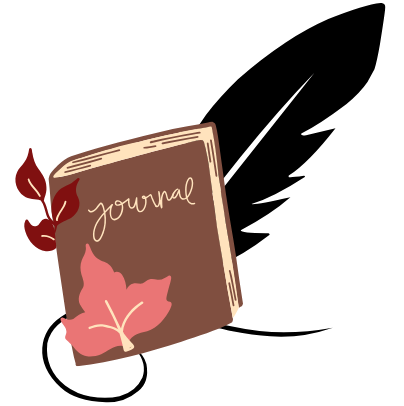Writer’s block can feel like an insurmountable obstacle, especially when you’re just starting out. That blank page staring back at you can be downright intimidating.
But don’t worry – even the most accomplished authors have faced this creative roadblock.
The good news is that with the right strategies and mindset, you can break through and get your words flowing again.
Understanding Writer’s Block
Writer’s block is more than just procrastination or laziness. It’s a genuine psychological phenomenon that can affect writers at any stage of their career.
Psychoanalyst Edmund Bergler first coined the term in the 1940s to describe a temporary inability to produce new work.
At it’s root, writer’s block often stems from fear, anxiety, or perfectionism. It’s that nagging voice telling you your ideas aren’t good enough or worrying that you’ll never match up to your favorite authors.
Even literary giants like F. Scott Fitzgerald and Leo Tolstoy grappled with this creative nemesis.
Strategies to Overcome Writer’s Block
1. Embrace Freewriting
Freewriting is one of the most powerful tools to combat writer’s block. Here’s how it works:
- Set a timer for 10-15 minutes
- Write continuously without stopping
- Don’t edit, judge, or overthink what you’re writing
The goal is to bypass your inner critic and tap into your subconscious creativity. Don’t worry about grammar, spelling, or even making sense.
Just get words on the page, no matter how messy or nonsensical they might seem at first.
I’ve found that freewriting often leads to unexpected breakthroughs. Sometimes, buried in the stream of consciousness, you’ll find a gem of an idea that you can develop further.
2. Change Your Writing Environment
A change of scenery can work wonders for your creativity. If you usually write at a desk, try moving to a cozy armchair or a local café.
You might be surprised at how a new environment can shift your perspective and inspire fresh ideas.
Research backs this up too. A 2019 study published in Frontiers in Psychology found that exposure to nature significantly boosts creativity and problem-solving abilities.
So if the weather allows, take your writing outdoors to a park or garden.
I personally love writing in different locations. Sometimes I’ll pack up my laptop and head to a new coffee shop, or even just move from my office to the back porch.
The change of scenery often helps me see my work in a new light.
3. Get Moving
Physical exercise isn’t just good for your body – it’s a powerful tool for overcoming writer’s block. A 2014 Stanford University study revealed that walking can enhance creative thinking.
The next time you feel stuck, try:
- Going for a brisk walk
- Doing some yoga
- Engaging in any form of exercise you enjoy
You might find that your best ideas come to you when you’re away from your desk. I often solve plot problems or come up with new ideas while I’m out for a run.
There’s something about the rhythm of movement that seems to unlock creativity.
4. Set Small, Achievable Goals
As a beginner, the idea of writing an entire novel or even a short story can feel overwhelming. Instead of focusing on the big picture, break your writing into smaller, more manageable chunks.
Try setting a goal to write 500 words a day, or commit to working on your project for 30 minutes each morning. These small wins can build momentum and boost your confidence over time.
I remember when I first started writing, I would set myself the goal of writing just one page a day. It seemed small, but those pages added up quickly, and before I knew it, I had the first draft of a novel.
5. Read Widely and Often
Reading is the writer’s fuel. Immersing yourself in different writing styles, genres, and ideas can spark your own creativity and help you overcome writer’s block.
Make time to read both within and outside of your preferred genre. You never know where inspiration might strike.
Keep a notebook or use a note-taking app to jot down interesting phrases, ideas, or observations from your reading.
These can serve as jumping-off points when you’re feeling stuck.
I always have a book with me, and I try to read across a wide range of genres. Sometimes a turn of phrase in a mystery novel will inspire a scene in my fantasy story, or a description in a literary fiction piece will give me ideas for my sci-fi world-building.
6. Use the Pomodoro Technique
The Pomodoro Technique, developed by Francesco Cirillo in the late 1980s, involves working in focused 25-minute intervals (called ‘Pomodoros’), followed by short breaks. This method can help you overcome the initial resistance to starting and maintain focus during your writing sessions.
Here’s how to use the Pomodoro Technique:
- Choose a task to work on
- Set a timer for 25 minutes
- Work on the task until the timer rings
- Take a short 5-minute break
- After four Pomodoros, take a longer 15-30 minute break
I’ve found this technique particularly helpful when I’m struggling to get started. Knowing I only have to focus for 25 minutes makes it easier to sit down and begin writing.
7. Practice Mindfulness
Mindfulness meditation can improve writing performance and reduce anxiety. A 2017 study published in the Journal of Writing Research found that even short meditation sessions can have a positive impact on writing.
Consider incorporating a short meditation practice into your daily routine. Even five minutes of mindful breathing before you start writing can help clear your mind and boost creativity.
I was skeptical about meditation at first, but after incorporating a 10-minute session into my morning routine, I noticed a significant improvement in my ability to focus and generate ideas.
8. Join a Writing Community
Writing doesn’t have to be a solitary endeavor. Joining a writing group or finding an accountability partner can provide support, motivation, and valuable feedback.
Sharing your struggles and successes with fellow writers can help you stay committed to your craft and push through periods of writer’s block. Look for local writing groups in your area, or join online communities dedicated to writing.
I joined a local writing group a few years ago, and it’s been invaluable. Not only do I get regular feedback on my work, but I also have a support system of people who understand the unique challenges of writing.
9. Experiment with Creative Cross-Training
Engaging in other artistic pursuits like painting, music, or dance can enhance your overall creativity and help you approach your writing from new angles.
A 2018 study in the journal Thinking Skills and Creativity found that diverse creative experiences can help overcome creative blocks. So don’t be afraid to explore other forms of creativity.
I took up watercolor painting as a hobby, and I’ve found that it often helps me visualize scenes in my writing more vividly. Plus, when I’m stuck on a writing project, switching to painting for a while often helps me return to my writing with fresh eyes.
10. Manage Digital Distractions
In our hyper-connected world, distractions are just a click away. Consider using apps that block social media or turning off notifications during your writing sessions.
Creating a distraction-free environment can help you maintain focus and overcome the temptation to procrastinate.
I use an app called Freedom to block distracting websites during my writing time. It’s amazing how much more productive I am when I’m not constantly tempted to check social media or my email.
Unconventional Approaches to Try
While the strategies above are tried and true, don’t be afraid to experiment with more unconventional approaches:
Write at Odd Hours
Some writers find they’re most creative very early in the morning or late at night when the world is quiet. Experiment with different writing times to find your peak creative hours.
I discovered that I’m most creative in the early morning hours. There’s something magical about writing while the rest of the world is still asleep.
Use Writing Prompts
Writing prompts can be a great way to kickstart your creativity when you’re feeling stuck. There are countless resources online and in books offering prompts for every genre and style.
Try setting aside 15 minutes each day to respond to a random writing prompt. You might be surprised at where it leads you.
Try Dictation
If typing or writing by hand feels too daunting, try speaking your story aloud and recording it. This can help bypass some of the mental blocks associated with traditional writing methods.
I use dictation when I’m feeling particularly stuck. Sometimes just hearing the words out loud helps me overcome my writer’s block.
Engage in ‘Method Writing’
Similar to method acting, immerse yourself in experiences related to your story. If you’re writing about a chef, take a cooking class.
Writing about a hiker?
Hit the trails. These real-life experiences can provide rich material for your writing.
For my last novel, which featured a character who was a beekeeper, I took a beekeeping course. Not only did it provide me with accurate details for my story, but the experience itself sparked new plot ideas.
Create a Writing Ritual
Develop a specific routine that signals to your brain it’s time to write. This could be lighting a candle, brewing a special tea, or putting on particular music.
Over time, this ritual can help trigger your creative mindset.
My writing ritual involves making a cup of Earl Grey tea and lighting a lavender-scented candle. As soon as I smell that combination, my brain knows it’s time to write.
The Role of Self-Care in Overcoming Writer’s Block
Don’t underestimate the importance of self-care in maintaining writing productivity. Adequate sleep, a balanced diet, and stress management techniques all contribute to a more creative and productive writing life.
A 2020 study in Scientific Reports found that caffeine consumption can enhance divergent thinking, a key component of creativity. However, moderation is key – too much caffeine can lead to jitters and anxiety, which can hinder your writing process.
Remember to take care of yourself physically and mentally. Regular exercise, a healthy diet, and enough sleep can all contribute to better writing sessions.
Embracing the Process
Experiencing writer’s block doesn’t make you any less of a writer. It’s a common part of the creative process that even the most successful authors face.
By implementing these strategies and maintaining a positive mindset, you can overcome writer’s block and continue to grow as a writer.
Exercises to Practice
- Set a timer for 10 minutes and freewrite about your current writing project.
Don’t stop to edit or judge – just let the words flow.
- Take a 20-minute walk in nature, observing your surroundings.
When you return, write about what you saw, heard, and felt.
- Choose a writing prompt and spend 15 minutes crafting a short story or scene based on it.
- Try the Pomodoro Technique for your next writing session.
Work for 25 minutes, then take a 5-minute break.
Repeat this cycle four times.
- Write a letter to your inner critic, addressing your fears and doubts about writing.
Then, write a response from your creative self, offering encouragement and support.
The Importance of Persistence
Overcoming writer’s block often comes down to persistence. The more you write, even when it feels difficult, the easier it becomes.
Writing is a muscle that needs to be exercised regularly.
Set aside time each day for writing, even if it’s just for 15 minutes. Consistency is key.
Over time, you’ll find that writer’s block becomes less frequent and less daunting.
Remember, every writer faces challenges. What sets successful writers apart is their ability to push through these difficulties and keep writing.
Harnessing Your Unique Voice
One of the most common causes of writer’s block is the fear that your writing isn’t good enough. It’s easy to fall into the trap of comparing yourself to other writers, especially those you admire.
However, it’s crucial to remember that your unique voice is your greatest asset as a writer. No one else has lived your experiences or sees the world quite the way you do.
Embrace your individuality and let it shine through in your writing.
Try this exercise: Write a scene or short story about a mundane event, like making a cup of coffee or waiting for a bus. But write it in a way that only you could.
Draw on your unique experiences, perspective, and voice.
The Importance of Revision
Many new writers get stuck because they’re trying to write a perfect first draft. This is an impossible standard that will only lead to frustration and writer’s block.
Instead, give yourself permission to write a “bad” first draft. The goal of a first draft is simply to get your ideas down on paper. You can always revise and improve it later.
In fact, many writers find that the real magic happens during the revision process. This is where you can refine your ideas, tighten your prose, and really make your writing shine.
Exploring Different Writing Styles and Genres
Sometimes, writer’s block occurs because we’ve fallen into a rut with our writing style or genre. Experimenting with different styles and genres can help reignite your creativity and passion for writing.
If you usually write fiction, try your hand at poetry. If you typically write in a serious tone, try something humorous.
You might uncover new strengths you didn’t know you had, and the change of pace can help overcome writer’s block.
The Role of Research in Overcoming Writer’s Block
Sometimes, writer’s block occurs because we feel we don’t know enough about our subject matter. This is where research can be incredibly helpful.
Spend some time researching the topic you’re writing about. Read books, articles, and interviews.
Watch documentaries.
The more you know about your subject, the easier it will be to write about it.
Research can also spark new ideas and directions for your writing. You might stumble upon an interesting fact or anecdote that takes your story in an exciting new direction.
Embracing Imperfection
Perfectionism is one of the biggest enemies of creativity. Many writers get stuck because they’re trying to write the perfect sentence, paragraph, or chapter.
Remember, perfect is the enemy of good. It’s better to write something imperfect than to write nothing at all.
You can always improve your writing in the revision process.
Try this: Set a timer for 15 minutes and write as quickly as you can, without stopping to edit or second-guess yourself. You might be surprised at what you produce when you let go of the need for perfection.
The Importance of Deadlines
While external deadlines can be stressful, they can also be incredibly motivating. If you don’t have external deadlines, try setting your own.
Tell a friend you’ll send them a chapter by the end of the week. Sign up for a writing contest with a submission deadline.
Join a writing group that expects new material at each meeting.
Having a deadline can provide the push you need to overcome writer’s block and get words on the page.
Celebrating Small Victories
Writing a novel or even a short story can feel like a monumental task. It’s easy to get discouraged when you focus on how far you still have to go.
Instead, try celebrating your small victories along the way. Did you write for 30 minutes today?
Celebrate that.
Did you finish a difficult scene? That’s worth celebrating too.
Acknowledging these small accomplishments can help maintain your motivation and push through periods of writer’s block.
The Importance of Feedback
Sometimes, writer’s block occurs because we’re too close to our own work. We can’t see the forest for the trees, as the saying goes.
This is where feedback from other writers or readers can be invaluable. Join a writing group, find a writing partner, or share your work with trusted friends or family members.
Their fresh perspective can help you see your work in a new light, potentially helping you overcome your writer’s block.
Embracing the Ebb and Flow of Creativity
It’s important to remember that creativity isn’t a constant flow. There will be times when the words come easily, and times when they don’t.
This is normal and natural.
Instead of fighting against the ebb and flow of your creativity, try to work with it. During periods of high creativity, write as much as you can.
During slower periods, focus on other aspects of writing, like research, outlining, or revision.
The Role of Rest in Creativity
Sometimes, the best way to overcome writer’s block is to step away from your writing entirely for a short period. Take a day off.
Go for a long walk.
Spend time with friends and family. Engage in other hobbies.
Often, when we return to our writing after a short break, we find that our creative juices are flowing again. Our subconscious mind has been working on our writing problems even while we were engaged in other activities.
Overcoming Self-Doubt
Self-doubt is a common cause of writer’s block, especially for beginners. You might find yourself wondering if your writing is good enough, if anyone will want to read it, or if you have what it takes to be a writer.
Remember, every writer, even the most successful ones, deals with self-doubt. The key is to thank these feelings but not let them stop you from writing.
Try keeping a “confidence file” – a collection of positive feedback you’ve received on your writing, or moments when you felt proud of your work. When self-doubt creeps in, review this file to remind yourself of your capabilities.
The Importance of Community
Writing can be a solitary activity, but it doesn’t have to be. Connecting with other writers can provide support, motivation, and inspiration.
Join a local writing group or an online writing community. Attend writing workshops or conferences.
Engage with other writers on social media.
Having a community of fellow writers can provide encouragement during times of writer’s block, as well as celebrate your successes with you.
Embracing the Journey
Remember, becoming a writer is a life-long habit to have formed, not a destination to reach. Every word you write, even when it feels like a struggle, is a step forward on that journey.
Embrace the process, including the challenges like writer’s block. These obstacles are opportunities for growth and learning.
Keep writing, keep learning, and keep pushing forward. With persistence and the right strategies, you can overcome writer’s block and continue to grow as a writer.
Key Takeaways
- Writer’s block is a common experience, even for seasoned authors.
- Freewriting can help bypass your inner critic and generate new ideas.
- Changing your environment and getting physical exercise can stimulate creativity.
- Setting small, achievable goals builds momentum and confidence.
- Reading widely provides inspiration and exposes you to different writing styles.
- Mindfulness practices can reduce anxiety and improve writing performance.
- Joining a writing community offers support and accountability.
- Experimenting with unconventional approaches can unlock new creative pathways.
- Self-care plays a crucial role in maintaining writing productivity.
- Embracing writer’s block as part of the process can help you grow as a writer.
Frequently Asked Questions
What causes writer’s block?
Writer’s block can be caused by various factors including fear of failure, perfectionism, lack of inspiration, burnout, or external stressors. It’s often a combination of psychological and environmental factors.
How long does writer’s block usually last?
The duration of writer’s block varies greatly from person to person and situation to situation. It can last anywhere from a few hours to several months.
The key is to actively work on overcoming it as opposed to waiting for it to pass.
Can reading help overcome writer’s block?
Yes, reading can be an excellent way to overcome writer’s block. It can provide inspiration, expose you to different writing styles, and stimulate your creativity.
Reading in your genre can be particularly helpful.
Is writer’s block a sign that I’m not meant to be a writer?
Absolutely not. Writer’s block is a common experience for writers at all levels, even highly successful authors.
It’s a normal part of the creative process and doesn’t reflect on your abilities or potential as a writer.
Can changing my writing environment help with writer’s block?
Yes, changing your writing environment can often help overcome writer’s block. A new setting can provide fresh inspiration and help break you out of a mental rut.
Are there any foods that can help with writer’s block?
While there’s no magic food that cures writer’s block, maintaining a healthy diet can support overall brain function and creativity. Foods rich in omega-3 fatty acids, antioxidants, and vitamins B and E are particularly beneficial for cognitive function.
How can I tell if I have writer’s block or if I’m just procrastinating?
Writer’s block is typically characterized by a genuine inability to produce new work despite the want to do so. Procrastination, on the other hand, often involves avoiding writing by engaging in other activities.
If you find yourself wanting to write but struggling to do so, it’s likely writer’s block.
Can meditation help with writer’s block?
Yes, meditation can be an effective tool for overcoming writer’s block. It can help reduce stress and anxiety, clear your mind, and improve focus – all of which can contribute to better writing sessions.
Is it okay to take a break when experiencing writer’s block?
Taking a short break can often be helpful when experiencing writer’s block. It allows your mind to rest and can provide new perspectives.
However, be cautious about extending this break too long, as it can make it harder to get back into writing.
How can I stay motivated during periods of writer’s block?
Staying motivated during writer’s block can be challenging. Setting small, achievable goals, celebrating small victories, connecting with other writers, and reminding yourself of why you love writing can all help maintain motivation during difficult periods.




